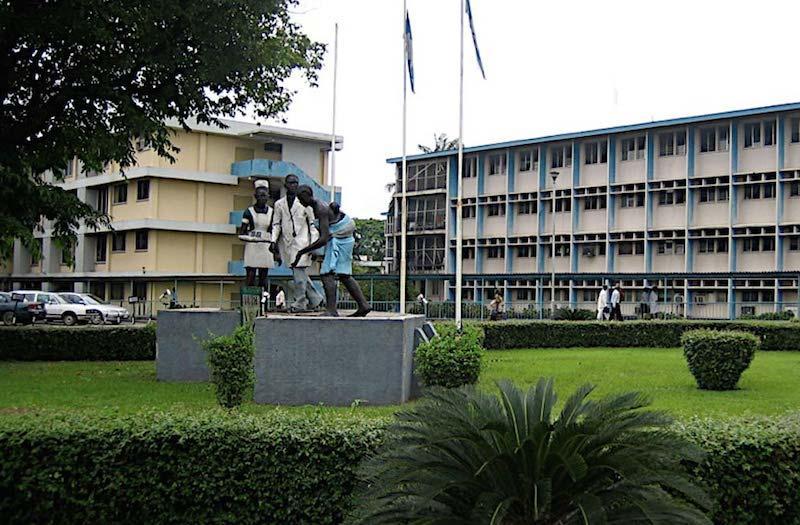Place your adverts here on InfoDig @ low rates; banner ads, sponsored links and guest articles etc. Contact us
Nigerians have long waited for the commencement of the sale of Premium Motor Spirit (PMS) by Dangote Refinery due to its expected benefits. The refinery commenced its first loading of PMS on Sunday, September 15, 2024, which according to the Ministry of Finance is a significant step in Nigeria’s journey toward energy self-sufficiency. However, according to the Federal Government, NNPCL will be the sole buyer of PMS from the refinery for now, and from October 2024, the NNPCL will begin selling crude oil to Dangote Refinery in Naira and purchasing PMS from the refinery in Naira, while diesel will also be sold in Naira to independent marketers. The decision to make NNPCL the sole off-taker of the PMS from the refinery has raised a lot of dust.
Read also: OPEC blames high fuel prices on taxes, not Dangote refinery, oil producers
Many people were disappointed when the NNPCL announced a hike in the price of PMS, as there was a general belief that PMS prices would drop once Dangote Refinery commenced production and sales. The refinery, which is privately owned and profit-oriented, won’t sell PMS for less than its production cost. Some major determinants of its production cost are the price of crude oil on the international market, the Naira-to-dollar exchange rate, and the cost of refining crude per litre. The Minister of Finance and Coordinating Minister of the Economy said in a TV interview on Sunday, September 15, 2024, “We are expecting that as this refinery and others ramp up production, scale, and achieve greater economies of scale, there should be the opportunity—and there is definitely the potential—to reduce their costs, which should be passed on to the consumer.”
There are growing concerns from many quarters that the recent hike in the price of Premium Motor Spirit (PMS), commonly known as petrol, could reverse the modest gains Nigeria has made in taming inflation. The National Bureau of Statistics (NBS) reported that the country’s headline inflation dropped slightly to 32.15 percent in August 2024, down from 33.4 percent in July, signalling cautious optimism about the economy’s trajectory. However, with food prices continuing to be the major driver of inflation, this reprieve was fragile. Under normal circumstances, as Nigeria enters the peak of the harvest season, a further decline in inflation would have been anticipated due to an increase in food supply.
However, the recent spike in PMS prices and the persistent fluctuations in the foreign exchange rate threaten to derail this progress. The hike in fuel prices, which affects the cost of transportation and the distribution of goods, especially food, is likely to compound inflationary pressures, making everyday items more expensive for the average Nigerian. Additionally, the volatility of the naira against foreign currencies adds another layer of unpredictability as it impacts import costs, further stoking inflation. These dual pressures could see inflation figures climb again in the coming months, undermining the temporary relief witnessed in August and raising fresh concerns about the country’s economic stability.
Read also: Marketers yet to lift Dangote petrol from NNPC over price
The price of PMS is expected to reduce in the long term as economies of scale are achieved by refineries, when more refineries come on stream, leading to competition, and as the Naira begins to gain value. Selling crude oil to domestic refineries in Naira and purchasing refined products from them in Naira will significantly reduce the pressure on foreign exchange. According to the Chairman of the Federal Inland Revenue Service, Zach Adedeji, this policy will save $7.32 billion annually by conducting all crude transactions with local refineries in Naira. It will also result in a more stable and stronger Naira.
The hike in PMS prices, while undoubtedly disappointing, is a temporary setback in Nigeria’s journey towards energy self-sufficiency. The Dangote Refinery represents a monumental step forward, and its long-term benefits are poised to outweigh the short-term challenges. As the refinery scales up production, achieves economies of scale, and benefits from a more stable exchange rate, we can anticipate a gradual decline in PMS prices.
The Nigerian government, NNPCL, and Dangote Industries Limited deserve commendation for this historic achievement. While the immediate impact of the price hike may be felt, the future holds promise. With patience and perseverance, Nigeria can reap the rewards of its energy independence and embark on a path of sustained economic growth.
Kenechukwu Aguolu FCA, ACIT, PMP, FCIA; [email protected]

 2 hours ago
32
2 hours ago
32















 English (US) ·
English (US) ·